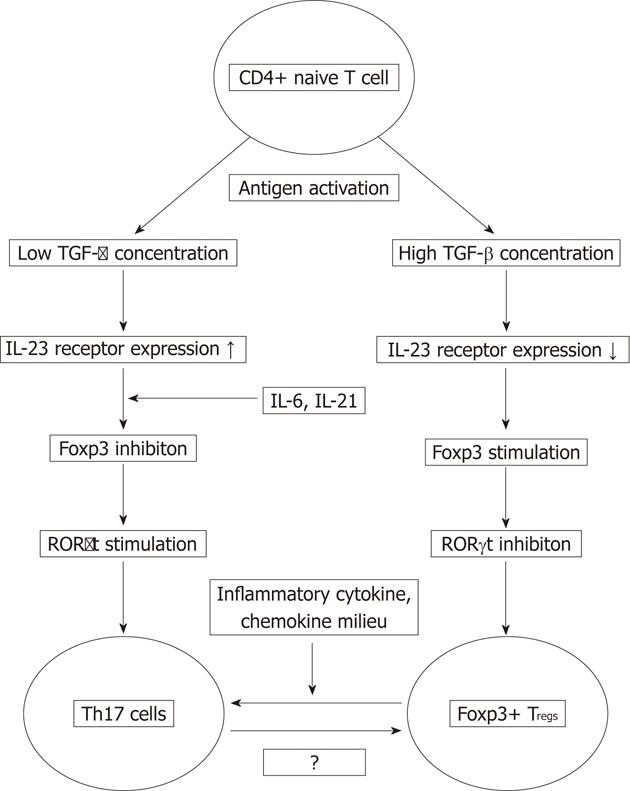Copyright
©2012 Baishideng Publishing Group Co.
World J Gastroenterol. Oct 28, 2012; 18(40): 5688-5694
Published online Oct 28, 2012. doi: 10.3748/wjg.v18.i40.5688
Published online Oct 28, 2012. doi: 10.3748/wjg.v18.i40.5688
Figure 1 Phenotypic plasticity of T cells in inflammatory bowel disease.
The mucosal concentration of transforming growth factor (TGF)-β influences the interleukin (IL)-23 receptor expression of antigen activated CD4+ T cells, which results imbalance in forkhead box P3 (Foxp3) and retinoic acid-related orphan receptor (RORγt) transcription factor activity. The Foxp3 dependent inhibition or stimulation of RORγt may regulate helper T cell (Th) 17 or Foxp3+ regulatory T cell (Treg) differentiation. The inflammatory cytokine/chemokine milieu may also influence the phenotypic changes of T cells.
- Citation: Műzes G, Molnár B, Sipos F. Regulatory T cells in inflammatory bowel diseases and colorectal cancer. World J Gastroenterol 2012; 18(40): 5688-5694
- URL: https://www.wjgnet.com/1007-9327/full/v18/i40/5688.htm
- DOI: https://dx.doi.org/10.3748/wjg.v18.i40.5688









